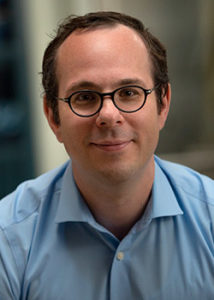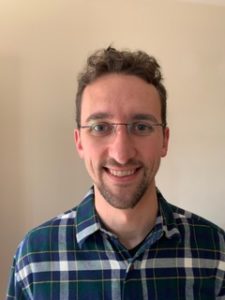
PHIND Seminar Series: Maintaining Competitive Advantage through Intellectual Capital
Soody Tronson, M.S., J.D.
Founder
Presque
Location & Timing
11:00am – 12:00pm Seminar & Discussion
Webinar URL: https://stanford.zoom.us/s/98817009379?pwd=U21pYnpCTUlxY3U2TEh4RmhvMXpvQT09
Dial: +1 650 724 9799 or +1 833 302 1536
Webinar ID: 988 1700 9379
Password: 767148
RSVP: https://www.onlineregistrationcenter.com/STronson
ABSTRACT
Digital health has provided a range of solutions, including health and wellness-related management, machine learning algorithms for pattern recognition, AI for genetic analysis, AI-enhanced clinical decision making, and virtual doctors that use AI for patient intake triage. Intellectual property can play an important role in providing a competitive advantage in the digital health industry. We will explore opportunities and challenges for protecting digital health technologies during the program, including patent eligibility challenges and the use of trade secrets.
ABOUT SOODY TRONSON
Soody Tronson is Founding Managing Counsel at STLG Law Firm, counseling domestic and international clients in IP and technology transactions in a wide range of technologies. In 2016 she formed, Presque, a company developing a line of medical devices for mothers and infants.
Soody has over 25 years of operational experience in technology, business, management, and law in start-up and fortune 100 companies, including Schering Plough Pharmaceuticals, Hewlett-Packard Co., Avantec Vascular, and the law firms of HellerEhrman and Townsend and Townsend.
Soody serves in board and leadership capacities with several organizations including the Association of Women in Science STEM to Market national accelerator; Licensing Executives Society USA/Canada, California Lawyers Association, and the Palo Alto Area Bar Association. Soody is a Commissioner with the city of Menlo Park; and an active hands-on volunteer with several civic organizations including Defy Ventures, an entrepreneurship training program for currently and formerly incarcerated. Soody has instructed courses in IP, licensing, and entrepreneurship at the University of California, Stanford University and European institutions. She is the co-author of the book “Women Securing the Future with TIPPSS for IoT: Trust, Identity, Privacy, Protection, Safety, Security for the Internet of Things.”
Hosted by: Garry Gold, MD
Sponsored by the PHIND Center and the Department of Radiology

CEDSS: “The Origins and Detection of Lethal Prostate Cancer”
Paul Boutros, Ph.D., M.B.A.
Director, Cancer Data Sciences
UCLA
Please see zoom details below:
Meeting URL: https://stanford.zoom.us/s/93515779500
Dial: +1 650 724 9799 or +1 833 302 1536
Meeting ID: 935 1577 9500
Meeting Passcode: 767148
ABOUT
Boutros earned his B.Sc. degree from the University of Waterloo in Chemistry in 2004, and his Ph.D. degree from the University of Toronto, Canada, in Medical Biophysics in 2008. At Toronto, he also earned an executive M.B.A. from the Rothman School of Management. In 2008, Boutros started his independent research career at the Ontario Institute for Cancer Research first as a fellow (2008–2010) and then as principal investigator (2010–2018). He moved to California to join the UCLA faculty in 2018.
Hosted by: Utkan Demirci, Ph.D.
Sponsored by the Canary Center & the Department of Radiology
Stanford University – School of Medicine

PHIND Seminar Series: Serum Modulation of Mitochondrial Function as a Scalable Sensor of Insulin Resistance
Andrew Lipchik, Ph.D.
Postdoctoral Fellow – Michael Snyder Lab
Stanford University
11:00am – 12:00pm Seminar & Discussion
12:00pm – 12:15pm Reception & Light Refreshments
RSVP: https://stanford.zoom.us/webinar/register/7716009863360/WN_dbeuo7csS8q_AhR88XET0g
Location: Zoom
Webinar URL: . https://stanford.zoom.us/s/96358568342
Webinar ID: 963 5856 8342
Dial: +1 650 724 9799 or +1 833 302 1536 (Toll Free)
Password: 767148
ABSTRACT
The global epidemic of obesity is associated with the dramatic increase in the prevalence of type 2 diabetes mellitus (T2D) with an estimated 400 million people worldwide will have T2D by 2030. T2D is proceeded by insulin resistance (IR) for up to decades prior to onset of T2D. Current estimates suggest approximately one in three individuals are sufficiently insulin resistant to be at risk for IR complications including T2D, coronary heart disease and nonalcoholic fatty liver disease. IR often goes undiagnosed due to the complex, invasive and laborious nature of clamp assays preventing their universal application in the clinic. Surrogate measurements using fasting plasma glucose and insulin levels can estimate IR but are imprecise. There is a need for the identification of new biomarkers and assays for the detection and monitoring of IR. Here, we demonstrate the utility of cellular mitochondrial respiration in response to individuals’ serum as a sensor for personalized monitoring of insulin sensitivity. The modulation of insulin-dependent mitochondrial function by patient serum was highly correlated with insulin sensitivity as determined by the gold-standard modified insulin suppression test (IST). We further applied this methodology to monitor insulin sensitivity over time in response to illness as well as treatment with the insulin sensitizing medication, pioglitazone. Our results demonstrate the development and application of a novel surrogate measurement for the determination and monitoring of insulin sensitivity. This assay offers the advantages of minimal invasiveness and complexity compared to IST as well as superior correlation with IST compared to existing surrogate measurements.
ABOUT ANDREW LIPCHIK
Andrew Lipchik majored in Chemistry at Xavier University where he preformed research on the development of oxygen activation Ni(II) complexes with Dr. Craig Davis and Dr. Michael Baldwin at the University of Cincinnati. He went on to obtain his PhD from Purdue University under mentorship of Dr. Laurie Parker. His thesis work focused on identifying determinants of kinase substrate specificity. This understanding was applied to the development of novel kinase-specific peptide biosensors to monitor intracellular kinase activity. Following his graduate work, he joined the laboratory of Michael Snyder at Stanford University where he has focused on understanding the impact of the immune system on insulin resistance and glucose metabolism.
Hosted by: Garry Gold, M.D.
Sponsored by the PHIND Center and the Department of Radiology

PHIND Seminar Series: Identifying Microbiome Markers of Progression of Alzheimer’s Disease
Ami Bhatt, M.D., Ph.D.
Assistant Professor of Medicine (Hematology) and of Genetics
Stanford University
Gavin Sherlock, Ph.D.
Associate Professor of Genetics
Stanford University
11:00am – 12:00pm Seminar & Discussion
RSVP: https://stanford.zoom.us/webinar/register/8016040837299/WN_iBOM7R4XQjOPSb20rkUxbw
Location: Zoom Webinar
Webinar URL: https://stanford.zoom.us/s/99730716280
Webinar ID: 997 3071 6280
Dial: +1 650 724 9799 or +1 833 302 1536 (Toll Free)
Password: 767148
ABOUT AMI BHATT
In perpetual awe of how ‘simple’ microbial organisms can perturb complex, multicellular eukaryotic organisms, Ami Bhatt has chosen to dedicate her research program to inspecting, characterizing and dissecting the microbe-human interface. Nowhere is the interaction between hosts and microbes more potentially impactful than in immunocompromised hosts and global settings where infectious and environmental exposures result in drastic and sometimes fatal health consequences.
Ami’s group identifies problems and questions that arise in the course of routine clinical care. Often in collaboration with investigators at Stanford and beyond, the group applies modern genetic, molecular and computational techniques to seek answers to these questions, better understand host-microbe interactions and decipher how perturbation of these interactions may result in human disease phenotypes.
GAVIN SHERLOCK’S RESEARCH INTERESTS
Adaptive Evolution and the Fitness Landscape: When yeast are evolved under various selective pressures in a chemostat, mutations that arise and provide an adaptive advantage will expand within the population. We have pioneered the use of high throughput sequencing to determine the identity of such mutations, as well as to understand the dynamics of the mutations within the populations, and the interactions between the mutations (such as epistasis). Further, we have developed a DNA barcode based lineage tracking system to determine the distribution of fitness effects (DFE) for newly arising beneficial mutations. We have also characterized what we call the genotype-fitness map for beneficial mutations, and have investigated why beneficial mutations provide a positive fitness effect. We are also interested in how beneficial mutations trade-off for different traits, and how those trade-offs constrain adaptive evolution.
Hosted by: Garry Gold, M.D.
Sponsored by the PHIND Center and the Department of Radiology

PHIND Seminar Series: Topics Below
Ahmed Metwally, PhD
“Pre-symptomatic detection of COVID-19 via wearables biosensors”
Postdoctoral Scholar – Michael Snyder, PhD Lab
Department of Genetics
Stanford University
Pierre-Alexandre Fournier, MS
“Continuous remote cardiorespiratory and health monitoring using the Hexoskin biometric shirt”
Co-founder and CEO
Hexoskin
Location: Zoom Webinar
Webinar URL: https://stanford.zoom.us/s/98925964231
Dial: +1 650 724 9799 or +1 833 302 1536 (Toll Free)
Webinar ID: 989 2596 4231
Passcode: 298382
11:00am – 12:00pm Seminar & Discussion
RSVP: https://stanford.zoom.us/webinar/register/WN_bruT-pvvQUePuBLqm2SLkQ
Ahmed Metwally Abstract
Wearable devices digitally measuring vital signs have been used for monitoring health and illness onset and have a high potential for real-time monitoring and disease detection. As such, they are potentially useful during public health crises, such as the current COVID-19 global pandemic. In my talk, I’ll discuss how wearables biosensors can be used as a tool to early detect COVID19 onset using physiological and activity data. By using retrospective smartwatch data, we showed that 63% of the COVID-19 cases could be detected before symptom onset in real-time via the occurrence of extreme elevations in resting heart rate relative to the individual baseline. Our findings suggest that consumer wearables may be used for the large-scale real-time detection of respiratory infections, often pre-symptomatically, and provide an approach for managing epidemics using digital tracking and health monitoring.
About Ahmed Metwally
Ahmed Metwally is a postdoctoral scholar in the Snyder lab at Stanford University. Ahmed received his Ph.D. in Bioinformatics/Bioengineering and MS in Computer Science (focused on Deep Learning), both from the University of Illinois at Chicago (UIC) in 2018. He currently works on developing novel machine learning methods for longitudinal multimodal biomedical data fusion (omics and wearable biosensors data) to early detect cardiometabolic diseases and personalize their treatments. Ahmed has received numerous awards, such as NIH Predoctoral Translational Scientist fellowship, ISMB’20 best talk award, Stanford COVID-19 RISE Grant, second-place award at Stanford Health++ Hackathon, and many travel awards NSF, IEEE, ISCB, and UIUC for various educational and scholarly activities.
Pierre-Alexandre Fournier Abstract
The Hexoskin Connected Health platform will be discussed as an example of a biometric shirt validated for use in telehealth and clinical research. Hexoskin has the only clinically validated biometric garment which provides continuous monitoring of numerous and unique physiological parameters. Hexoskin is an enabling technology for telehealth use cases, such as remote patient monitoring, rehab, and detect the onset of illness. Hexoskin offers a unique set of high-resolution biometric data that can continuously monitor activity, sleep, cardiac and respiratory data. Projects in fields such as cardiology, respiratory, behavioral and physiological psychology, biofeedback research, sleep research, and health will be described. The Hexoskin Connected Health Platform provides researchers with accessible solutions such as the Hexoskin Dashboards, Open API, and Apps to manage, visualize, annotate, analyze, and export raw & processed health data. Data extraction tools allow access to the raw data with time series for machine learning and artificial intelligence projects.
About Pierre-Alexandre Fournier
Pierre-Alexandre Fournier is co-founder and CEO of Hexoskin, a Montreal-based company focused on clinical-grade wearable sensors and AI software for health and clinical research. Hexoskin was founded in 2006 and in 2013 released the first iPhone compatible smart clothing for health monitoring, winning several international awards. In 2018 Hexoskin launched a remote health monitoring system for astronauts on the International Space Station. Hexoskin recently reached the milestone of 100 scientific publications. Pierre-Alexandre earned his MASc and his BEng in Electrical Engineering from the Ecole Polytechnique de Montreal and became a lecturer there teaching machine learning. He completed the Harvard Business School HBX Core program with high honors. Pierre-Alexandre is also an advocate for transparency in healthcare, patient empowerment, and healthcare innovation through design.
Hosted by: Angela McIntyre, Executive Director, eWEAR Initiative
Sponsored by: PHIND Center, Department of Radiology, eWEAR Initiative

Radiology Department-Wide Research Meeting
• Curt Langlotz, MD, PhD: Overview of the AIMI Center
• Brian Hargreaves, PhD: Research Details from Town Hall, Q&A, and COVID19 Updates
Location: Zoom – Details can be found here: https://radresearch.stanford.edu
Meetings will be the 3rd Friday of each month.
Hosted by: Brian Hargreaves, PhD
Sponsored by: the the Department of Radiology

CEDSS: Systematic identification of fluid-based biomarkers for ovarian and prostate cancer
Thomas Kislinger, Ph.D.
Professor & Chair
Department of Medical Biophysics
University of Toronto
Senior Scientist
Princess Margaret Cancer Centre
Zoom Webinar Details
Meeting URL: https://stanford.zoom.us/s/94878578384
Dial: +1 650 724 9799 or +1 833 302 1536
Webinar ID: 948 7857 8384
Passcode: 692692
Register Here
ABOUT
Thomas Kislinger received his MSc in Analytical Chemistry from the University of Munich, Germany (1998). He completed his PhD in 2001, investigating the role of Advanced Glycation Endproducts in diabetic vascular complications at the University of Erlangen, Germany and Columbia University, New York. Between 2002 and 2006 he completed a post-doctoral fellowship at the University of Toronto. In 2006 he joined the Princess Margaret Cancer Centre as an independent investigator. Dr. Kislinger holds positions as Senior Scientist at the Princess Margaret Cancer Centre and as Professor and Chair at the University of Toronto in the Department of Medical Biophysics. The Kislinger lab applies proteomics technologies to translational and basic cancer biology. This includes the development of novel proteomics methodologies, identification of liquid biopsy signatures and the molecular identification of novel cell surface markers.
Hosted by: Utkan Demirci, Ph.D.
Sponsored by: The Canary Center & the Department of Radiology
Stanford University – School of Medicine

PHIND Seminar Series: Maternal Trauma History, Attachment Style, and Depression Are Associated with Broad DNA Methylation Signatures in Infants
Thalia Robakis, M.D., Ph.D.
Associate Professor
Department of Psychiatry
Mount Sinai School of Medicine
Location: Zoom
Webinar URL: https://stanford.zoom.us/s/95483174518
Dial: US: +1 650 724 9799 or +1 833 302 1536 (Toll Free)
Webinar ID: 954 8317 4518
Passcode: 179384
11:00am – 12:00pm Seminar & Discussion
RSVP Here
ABSTRACT
Background: The early environment provides many cues to young organisms that guide their development as they mature. Maternal personality and behavior are an important aspect of the environment of the developing human infant. The molecular mechanisms by which these influences are exerted are not well understood. We attempted to identify whether maternal traits could be associated with alterations in DNA methylation patterns in infants.
Methods: 32 women oversampled for history of depression were recruited in pregnancy and provided information on depressive symptoms, attachment style, and history of early life adversity. Buccal cell DNA was obtained from their infants at six months of age for a large-scale analysis of methylation patterns across 5×106 individual CpG dinucleotides, using clustering-based criteria for significance to control for multiple comparisons. Separately, associations between maternal depression, attachment style, and history of adversity and psychobehavioral outcomes in preschool-age children were examined.
Results: Tens of thousands of individual infant CpGs were alternatively methylated in association with each of the three studied maternal traits. Genes implicated in cell-cell communication, developmental patterning, growth, immune function/inflammatory response, and neurotransmission were identified. The result sets were highly coextensive among the three maternal traits, but areas of divergence exhibited intriguing parallels with behavioral outcomes.
Conclusions: Maternal personality traits are an important aspect of the infant environment that shapes offspring development in many ways. Infant genes that are epigenetically modified in reponse to maternal traits are potential candidate mediators for these effects. We have identified a large number of such genes and demonstrated parallels to clinically measurable outcomes in children.
ABOUT
Dr. Robakis is a psychiatrist with clinical and research interests in perinatal mood disorders and in the contribution of early life experiences to adult mental health and illness. She completed her M.D. as well as a Ph.D. in developmental neurobiology at Columbia University’s Medical Scientist Training Program, residency training in psychiatry at Stanford University School of Medicine, and a research fellowship in perinatal mood disorders also at Stanford. She remained on the clinical faculty at Stanford until 2019, when she accepted a position at the Icahn School of Medicine at Mount Sinai, where she is currently Associate Clinical Professor of Psychiatry and Assistant Director of the Women’s Mental Health Program.
Dr. Robakis’ research interests include the effects of early life stress and disordered attachment on risk for psychiatric illness in the perinatal period, on alterations in metabolism and cognition, and on psychobehavioral development in offspring. She is particularly interested in using epigenetic marks to help identify the biological pathways through which early life experiences exert their effects on outcomes in adulthood and intergenerationally.
Hosted by: Garry Gold, M.D.
Sponsored by the PHIND Center and the Department of Radiology

Radiology Department-Wide Research Meeting
Location: Zoom – Details can be found here: https://radresearch.stanford.edu
Meetings will be the 3rd Friday of each month.
February 19 Speakers:
Bruce Daniel, MD – Center Overview: IMMERS
Jennifer McNab, PhD – Encoding and Decoding Diffusion MRI
Hosted by: Brian Hargreaves, PhD
Sponsored by: the the Department of Radiology

CEDSS: Disseminated cell hybrids as biomarkers for cancer detection, prognosis and treatment response
Melissa Wong, Ph.D.
Associate Professor and Vice Chair
Department of Cell, Development and Cancer Biology
Program Co-Lead, Knight Cancer Institute
Oregon Health & Science University
Zoom Details
Meeting URL: https://stanford.zoom.us/s/98184098662
Dial: US: +1 650 724 9799 or +1 833 302 1536 (Toll Free)
Meeting ID: 981 8409 8662
Passcode: 084321
ABSTRACT
Metastatic progression defines the final stages of tumor evolution and underlies the majority of cancer-related deaths. The heterogeneity in disseminated tumor cell populations capable of seeding and growing in distant organ sites contributes to the development of treatment resistant disease. We recently reported the identification of a novel tumor-derived cell population, circulating hybrid cells (CHCs), harboring attributes from both macrophages and neoplastic cells, including functional characteristics important to metastatic spread. These disseminated hybrids outnumber conventionally defined circulating tumor cells (CTCs) in cancer patients. It is unknown if CHCs represent a generalized cancer mechanism for cell dissemination, or if this population is relevant to the metastatic cascade. We detect CHCs in the peripheral blood of patients with cancer in myriad disease sites encompassing epithelial and non-epithelial malignancies. Further, we demonstrate that in vivo-derived hybrid cells harbor tumor-initiating capacity in murine cancer models and that CHCs from human breast cancer patients express stem cell antigens, features consistent with the ability to seed and grow at metastatic sites. We reveal heterogeneity of CHC phenotypes reflect key tumor features, including oncogenic mutations and functional protein expression. Importantly, this novel population of disseminated neoplastic cells opens a new area in cancer biology and renewed opportunity for battling metastatic disease.
ABOUT
The research focus of the Wong laboratory revolves around understanding the regulatory mechanisms that control epithelial stem cell homeostasis and their expansion in developmental, homeostasis and disease contexts, including cancer. I have substantial training and experience in intestinal stem cell investigation leveraging in vivo and ex vivo modeling, as well as in myriad cutting edge technologies (i.e. cyCIF, scRNA-seq). My publication record spans my post-doctoral fellowship in Dr. Jeffrey Gordon’s laboratory at Washington University School of Medicine, to studies in my own laboratory at Oregon Health & Science University. Our research impacts the understanding of regulatory mechanisms that govern cell state in the context of the evolving tissue microenvironment and changing cell signaling landscape, in development and disease.
Our studies in stem cell regulation led to the intriguing finding that stem cells can fuse with tissue macrophages in the context of injury repair and may impact tissue regeneration. We have extended these findings to the cancer setting, where cancer-macrophage fusions are detectible in primary and metastatic tumors, and my group recently identified and characterized these cells as a novel circulating tumor cell population. Importantly, our studies in cell culture, in mice and humans provide an indepth evaluation of hybrid cells to set the foundation for continued investigations into their biology, impact on disease progression or tissue regeneration, and use as a biomarker for disease burden. Importantly, we coined the term, circulating hybrid cell (CHC) for this novel population and reported they exist at higher levels than conventionally defined circulating tumor cells in the peripheral blood of cancer patients. This work was published in 2018 and highlighted by Science Magazine as one of the top ten publications in the cancer field in the science family journals. The science proposed in this U01 application leverage hybrid cell biology to assess treatment response and resistance in breast cancer patients undergoing targeted therapy. Our proposal leverages active collaborations with Dr. Young Hwan Young’s group to synergize biology with computation, as well as a number of other valuable collaborators to ensure success of the proposed, cutting-edge science.
Hosted by: Utkan Demirci, Ph.D.
Sponsored by: The Canary Center & the Department of Radiology
Stanford University – School of Medicine